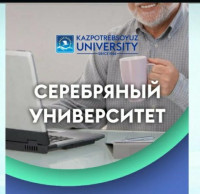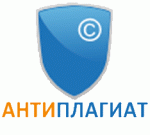HANDBOOK OF THE ENTREPRENEURS CENTER
 |
|
 |
 |
DEVELOPMENT OF A MASTER PROGRAMME IN THE MANAGEMENT OF INDUSTRIAL ENTREPRENEURSHIP FOR TRANSITION COUNTRIES
610198-EPP-1-2019-1-ES-EPPKA2-CBHE-JP

GOALS OF THE CENTER
The goals of the functioning of the Entrepreneur Center (hereinafter referred to as the Center) are:
- improvement of the educational process based on strengthening the relations of departments with public administration bodies, commercial and non-profit organizations,
- attracting highly qualified teachers and practitioners from the fields of science and business,
- increasing the efficiency of the use of scientific, pedagogical, and production personnel, educational, scientific, and production capacities to improve the process of professional training of students, undergraduates, and doctoral students based on the integration of science, education, and production.
THE MAIN OBJECTIVES OF THE CENTRE
To achieve these goals, the Center's activities are aimed at solving the following tasks:
1 improving the organization of the educational process, strengthening the practical training of students, undergraduates, and PhD-students through the development of strategic partnerships with enterprises, and organizations;
2 coordination of joint activities of all those willing to participate in the implementation of the educational program, including its member organizations (institutional structures) and enterprises for the training, retraining, and professional development of specialists ;
3 Support in improving the efficiency of educational and research work and the implementation of their results in production;
4 development of the research work in the field of activity of departments with the involvement of students, undergraduates, doctoral students, and university teachers;
5 organization and conducting of practical training for the purpose of vocational guidance of students, and assistance in the employment of graduates.
FUNCTIONS OF THE CENTRE AND ITS PARTICIPANTS
1 The Center performs the following main functions:
1.1 involvement of leading practitioners in the organization of the educational process to strengthen its applied orientation;
1.2 organizes and conducts master classes, platinum lectures, business training, and group consultations with students, and undergraduates;
1.3 conducts individual classes with students, undergraduates;
1.4 organizes review and consulting meetings with interested parties on the content of educational materials ;
1.5 participates in the work of the State classification board;
1.6 conducts professional orientation activities for applicants at all levels of education (bachelor's degree master's degree-PhD);
1.7 organizes internships for students, and undergraduates in specialized organizations;
1.8 attracts students, undergraduates, PhD-students, and teachers to the implementation of research and applied analytical projects;
1.9 organizes scientific seminars, round tables, and conferences, preparation of joint scientific publications: monographs, articles, textbooks, and workshops.
2 The main functions of the department implementing the Master's degree educational program (hereinafter: graduating department, department) in the work of the Center:
2.1 coordinates and organizes training sessions in the divisions of the enterprise (workshops, departments, and others) or organizations;
2.2 organizes the execution of course works, diploma projects (works) master's theses and projects (scientific and pedagogical and specialized areas), scientific work of students on topics related to the solution of research, experimental and production tasks facing the enterprise (organization);
2.3 carries out work on the implementation of the main provisions of the studied topic of students in the activities of enterprises (organizations, institutions) (acts of implementation);
2.4 conducts career guidance work among employees of enterprises (organizations) for admission to Master's degree and specialized Doctor’s degrees;
2.5 organizes field classes at enterprises for schoolchildren and students at fixed schools and colleges;
2.6 directs the teaching staff of the department to enterprises (organizations) to give lectures and conduct master classes, seminars, and training;
2.7 carries out work on the introduction of author courses by teachers of the department based on the results of industrial internships on the basis of enterprises (organizations);
2.8 performs research and experimental production work on the subject of the enterprise (organization) on a contractual basis;
2.9 invites experienced specialists of the enterprise (organization) to participate in the educational process on a part-time basis and hourly wage, as well as in work of scientific seminars;
2.10 according to the orders of the enterprise (organization) trains students and undergraduates to work on it after graduation;
2.11 organizes the preparation of joint scientific publications of specialists of the enterprise (employees of the organization) and teaching staff of the department.
3 Functions of the enterprise (organization) that is part of the Center:
3.1 organization and conducting of professional practice of undergraduates and doctoral students on the basis of partner enterprises;
3.2 organization and conducting of scientific internships for undergraduates and doctoral students on the basis of partner enterprises;
3.4 carrying out of custom theme from partner companies within the framework of research of undergraduates and their dissertations/projects;
3.5 participation of partner enterprises in the design, review, and approval of educational programs, curricula, and programs, catalogs of elective disciplines, themes of dissertations, and projects in the specialties of master's and doctoral studies implemented at KarUK;
3.6 implementation of the results of scientific/experimental research work of undergraduates and doctoral students in the activities of partner enterprises;
3.7 participation of partner enterprises as members of State classification board in Master's degree specialties;
3.8 other forms of cooperation related to the educational and scientific activities of undergraduates and doctoral students of the university;
3.9 participation in the development of professional competencies of graduates;
participation in the QS survey for the university rating;
3.10 sending of leading production specialists in accordance with the established procedure for conducting the educational process and participating in research activities according to joint plans and programs;
3.11 allocation of premises for the organization of a branch of the university department for conducting training sessions, as well as the assignment of employees of the enterprise to students and undergraduates during their professional practice;
3.12 reviewing and approving themes of course works, diploma, master's projects, and research activities and reviewing the works performed by students on the assignment of the enterprise;
3.13 participation in updating and examination of the content of curricula, and individual disciplines of the educational program (including the introduction of practice-oriented elective courses) to strengthen their practical orientation;
3.14 providing the opportunity for industrial internships by teachers of the department;
3.15 assistance in conducting excursions and familiarization with the production process at the enterprise for schoolchildren and students at the assigned schools and colleges of the department.
STRUCTURE OF THE CENTRE
1 The center can be created in two ways: the Center as a new structural unit and the Center on the basis of a previously existing center (coworking, career, employment, etc.).
The first method is advisable for those universities that did not have similar structural units before. The second method is more suitable for universities that have already established large career centers, employment centers, Additional Education Centers, Competence Development Centers, or other structures that perform a significant part of the functions related to the business environment.
2 The creation of the Center in CA partner universities will take place in accordance with the model developed within the framework of the MIETC project and the Standard Regulations of the Center. At the same time, the specifics, profile, and needs of each university, as well as the requests of employers and the requirements of academic committees should be taken into account.
3 Structurally, the Center may include the head of the center, offices, managers, tutors, instructors, and coaches. It can involve tutors, instructors, coaches, and other categories of specialists by contract.
4 The structure and staff of the Center of each specific university are determined by the staffing of the university and approved by the Rector. Functional duties, rights, responsibilities, and working conditions of each category of employees should be reflected in job descriptions approved by the Rector of the university.
5 The integration of the Center at the institutional level will manifest itself through the creation of new connections, the redistribution of authorities and responsibilities, and structural (merger, division), and personnel (assignment, reassignment) changes in other departments.
6 The Center closely cooperates with departments and faculties and also participates in various forms of integration of the university with the business environment (business incubators, coworking centers, educational, scientific, and production complexes, etc.) on the development of professional competencies.
FINANCIAL SUPPORT FOR THE FUNCTIONING OF THE ENTREPRENEURSHIP CENTER
1 Internal funds of the institution/organization on the basis of which the Center was established and operates, and the balance of which includes the remuneration of the Center's staff;
2 Funds received in the form of sponsorship from interested parties;
3 Funds of various foundations offering and organizing competitions of entrepreneurial projects, etc.;
4 Funds received from organizing and conducting professional development courses, and other image events aimed at popularizing the activities of the Center;
5 Funds of regional institutions for the development and support of entrepreneurship;
6 Customer funds for research and development in the field of technological entrepreneurship;
7 Funds gained from participation in grant topics and projects initiated by the relevant Ministries of the country.
EVALUATION/QUALITY ASSURANCE
1 Internal assessment (self-assessment):
1.1 The Center carries out regular monitoring and analysis of its activities, and provides revision of training programs, courses, and other products of its activities, including assessment:
- relevance of the content of the offered programs and services;
- compliance with the changing needs of all stakeholders and operating conditions;
- the effectiveness of the programs and services offered, as well as the activities in general.
1.2 The Center is subject to internal audit.
1.3 The Center plans and implements actions to resolve risks and realize opportunities. Risk management and the realization of opportunities create the basis for improving the effectiveness of the quality management system, obtaining improved results, and preventing negative effects. Opportunities may arise as a result of a situation favorable for achieving the desired results, for example, a set of circumstances that allow the Center to attract consumers, develop new products or services, reduce losses, or increase productivity. Actions to realize opportunities may also include taking into account the relevant risks. Risk is the influence of uncertainty and any such uncertainty can have both positive and negative effects. A favorable deviation caused by risk may lead to opportunities, but not all the positive effects of risks turn into opportunities.
2 External evaluation (monitoring, questionnaires, interviews, etc.):
2.1 External evaluation of activities is carried out by external experts at various organizational levels. Responsibility for the effectiveness and efficiency of the Center is assigned to the head of the center.
3. The work provided by the joint plans of departments and enterprises is carried out by the participants of the Centre free of charge, except in cases of scientific research and experimental work.
PROFESSIONAL DEVELOPMENT PROGRAMS KARAGANDA UNIVERSITY OF KAZPOTREBSOYUZ FOR THE 2023-2024 ACADEMIC YEAR
For questions about conducting courses and passing training on our programs, please contact:
Karaganda, Akademicheskaya str., 9, office 107.
Contact phone number: 8(7212) 441634 (6507)
8 707 408 20 65- Sagitova Zhanel Yerbolatovna
e-mail: This email address is being protected from spambots. You need JavaScript enabled to view it.
SILVER UNIVERSITY
"Silver University", the University of the Third Age is an international movement whose task is to create favorable e conditions for the successful adaptation of older people in modern life, for self-education and self-improvement.
The purpose of the activities of the "Silver University" is
increasing the social activity of the older generation.
The objectives of the "Silver University" are:
- improving computer skills;
- improving financial and legal literacy;
- studying and deepening knowledge of foreign languages;
- understanding of developmental psychology;
The work of the "Silver University" involves teachers from the Karaganda University of Kazpotrebsoyuz, as well as partners, specialists from state institutions (departments for the coordination of employment and social programs, health, education, culture, etc.).
At the Silver University, classes are organized in the following areas:
- "Computer literacy"
- "Legal literacy"
- "Polyglot"
- "Spiritual development"
- "Healthy lifestyle".
The number and composition of disciplines included in each direction depends on the needs of the students.
Course programs:
- "Digital Literacy"
- "Emotional intelligence"
- "How to maintain and improve health"
- “ Ensuring human rights in activities law enforcement »
- " Time Management "
- " Electronic business "
- " Communicative Competence "
- " Aspiring Entrepreneur "
Education at the "Silver University" is carried out according to a separate schedule of the educational process.
Classes are held 2 times a week.
The duration of one lesson is 1 academic hour.
The duration of one training course is no more than 2 months.
The schedule of classes is compiled in accordance with the wishes of the students.
The number of activities of the "Silver University" can be supplemented based on the requests and wishes of potential students.
The group of listeners is no more than 12 people.
Forms of conducting classes: lectures, seminars, excursions, trainings. Classes are held in group form.
The format of classes is full-time and distance education.
Academic year at the "Silver University" - from October 1 to May 1
At the end of the course, a certificate is issued.
To enroll in the Silver University, you must fill out an application, which can be downloaded from the link: download application .
Contact Information:
Tel.: 8 7212 44 15 68
WhatsApp : +7 775 118 77 77
Address: Karaganda , Akademicheskaya st . 9, Office 107
E - mail : This email address is being protected from spambots. You need JavaScript enabled to view it.
LINK FOR ONLINE REGISTRATION: https://docs.google.com/forms/d/1-0rALgFEfw2kJvjYj3MYUNumCmeGLedfayHHqOV94Ow/edit
GRADUATE EMPLOYMENT
Vacancies for graduates:
ACTIVITIES WITHIN THE FRAMEWORK OF EMPLOYMENT
PRACTICE
It is a type of educational activity aimed at the formation, consolidation, development of practical skills and competence in the process of performing certain types of work related to future professional activities.
The main types of internships for undergraduate EP students implemented at the university are: educational, industrial, pedagogical and pre-diploma practice. Pre-diploma practice is carried out in order to collect material and prepare for the defense of the final qualifying work. Students of the master's and doctoral levels undergo pedagogical, industrial and research practice.
Practice for persons with disabilities and the disabled is carried out taking into account the peculiarities of their psychophysical development, individual capabilities and health status.
The practice can be carried out in state, public, commercial and non-commercial organizations that carry out activities on the profile of training students, the content of which corresponds to the professional competencies mastered in the framework of educational programs.
The organization of the practice, provided for by the curriculum of the EP, is carried out on the basis of contracts for the conduct of professional practice with organizations, regardless of their organizational and legal forms and forms of ownership.
TO THE HEAD OF THE PRACTICE: https://www.keu.kz/en/section-table/31-materialy/9609-rukovoditelyu-praktiki-2.html
TO THE STUDENT: https://www.keu.kz/en/section-table/31-materialy/9610-studentu-2.html
TO THE HEAD OF THE PRACTICE BASE: https://www.keu.kz/en/section-table/31-materialy/9611-rukovoditelyu-bazy-praktiki-2.html
PRACTICE PROGRAMS: https://www.keu.kz/en/section-table/31-materialy/9612-programmy-praktiki-2.html
EMPLOYER PARTNERSHIPS: https://cloud.mail.ru/public/4UHA/YC6VzQE31
SKILLS PASSPORT
FILL THE FORM :https://forms.gle/Y9ZWCMw9PTmpzDWw6
SOCIAL MEDIA ENTREPRENEURS CENTER
SUSTAINABILITY
|
№ |
Type of planned work |
Name of the document |
Planned implementation period (starting from January 2024 to 2029 and/or beyond) |
Indicator of the result, with links to information, analysis, etc., posted on the university's website on the project page |
|
Karaganda University of Kazpotrebsoyuz |
||||
|
1. Assistance in the employment of graduates |
||||
|
|
Preparation of statistical information for university reference (employment) |
The work plan of the Career and Professional Development Center |
September (annually) |
Annual report |
|
|
Organization of meetings with university students (presentation of the CPDC) |
Work plan of the Career and Professional Development Center |
October – November (annually) |
Meeting with students |
|
|
Determination of the current and future regional/national needs of the labor market and a proposal for the development of new educational programs |
Work plan of the Career and Professional Development Center |
October (annually) |
Shortage and surplus of professions in the regional labor market |
|
|
Announcement of the nominations "The most creative account in social networks", "The most commented account" |
Work plan of the Career and Professional Development Center |
October-November (annually) |
Results of the competition |
|
|
Monitoring the implementation of the University's sustainable development strategy |
Work plan of the Career and Professional Development Center |
January 2024 |
SWOT analysis |
|
|
Study of the experience of other universities in the field of sustainable development in order to use the best practices |
Work plan of the Career and Professional Development Center |
February 2024 |
Definition of the best practices of sustainable development |
|
|
Assessment of the external perception of the University: analytical tools and expert assessment |
Work plan of the Career and Professional Development Center |
March 2024 |
EP ratings and reviews |
|
|
Monitoring the effectiveness of activities carried out together with employers |
The work plan of the Career and Professional Development Center |
Constantly Based on the results of the events |
SWOT analysis |
|
|
Monitoring of employment and preparation of a minute for the redistribution of graduates sent to Employment Centers |
Work plan of the Career and Professional Development Center) |
September (annually |
SWOT analysis |
|
|
Monitoring of employment of graduates in 2024, including using the UAPF database |
Work plan of the Career and Professional Development Center |
September 2024, February and April 2025 |
Data from the UAPF database |
|
|
Monitoring of employment of graduates in 2024, including using the UAPF database |
Work plan of the Career and Professional Development Center |
September 2024, February and April 2025 |
Data from the UAPF database |
|
|
Organization of meetings of graduates with representatives of the Employment Center |
Work plan of the Career and Professional Development Center |
October-December (by agreement, annually) |
Percentage of employed graduates with the help of the employment center |
|
|
Organization and conducting of “Career Day” |
Work plan of the Career and Professional Development Center |
November (annually) |
Percentage of employed graduates with the help of the Career Day |
|
|
Collection of CV and characteristics of graduate students |
Work plan of the Career and Professional Development Center |
February (regularly) |
Database of graduates' CVs |
|
|
Monitoring of graduates' employment within 5 years, including the use of the UAPF database |
Work plan of the Career and Professional Development Center |
April 2024 |
Employment dynamics |
|
|
Conducting an online meeting with students by state order with representatives of JSC “Financial Center” |
Work plan of the Career and Professional Development Center |
April (annually, by agreement) |
Awareness of graduates |
|
|
Participation in the work of“Job Fair”, together with the Employment Center of the city of Karaganda |
Work plan of the Career and Professional Development Center |
April 2024 (and further according to the schedule) |
Percentage of employed graduates according to the results of the Job Fair |
|
|
Collection and analysis of information on employment of graduates in 2024 |
Work plan of the Career and Professional Development Center |
June 2024 |
Data on employment and the percentage of employed |
|
2. Organization of internship |
||||
|
|
Preparation and approval of the internship schedule for students of all forms of education |
Work plan of the Career and Professional Development Center |
September (annually) |
Academic Internship calendar |
|
|
Registration of contracts and updating of the Enterprise database |
Work plan of the Career and Professional Development Center |
Constantly updated |
Database “Enterprise” |
|
|
Support for the fullness of the information resource of enterprise data, including databases of practices and the placement of scanned contracts on the university's website |
Work plan of the Career and Professional Development Center |
Regularly |
Database “Enterprise” |
|
|
Monitoring of internships (according to the schedule) |
Work plan of the Career and Professional Development Center |
According to the schedule |
SWOT analysis |
|
|
Formation of a unified register of internship programs for all forms and terms of training in the "Internship" tab |
Work plan of the Career and Professional Development Center |
September, October 2024 |
Register of internship programs |
|
|
Monitoring of the process of organizing and passing internships on the University's EPs |
Work plan of the Career and Professional Development Center |
October-November (annually) |
SWOT analysis |
|
|
Signing of internship contracts on behalf of the university |
Work plan of the Career and Professional Development Center |
Regularly |
internship contracts |
|
3. Continuing education |
||||
|
|
Conducting explanatory information work among students on the concept of continuing education |
Work plan of the Career and Professional Development Center |
Constantly |
Number of master and doctoral students |
|
|
Conducting seminars on the presentation of the concept of continuing education |
Work plan of the Career and Professional Development Center |
Annually (by agreement with dean offices) |
Percentage of informed people |
|
|
Promotion of short-term courses for various groups of students through university accounts, including the Career and Professional Development Center as well as Facebook and Instagram |
Work plan for the Career and Professional Development Center |
September-December 2024 |
Information content of accounts |
|
|
Conducting a seminar for faculty and university staff on continuing education, including discussion of issues related to the recognition of learning outcomes |
Work plan of the Career and Professional Development Center |
October 2024 |
Number of teaching staff who have completed the courses |
|
|
Contextual advertising of advanced training courses and programs |
Work plan of the Career and Professional Development Center |
Constantly |
Number of people who have completed advanced training courses |
|
|
Conducting debates among students on the topic of the development of continuing education (with IMC) |
Work plan of the Career and Professional Development Center |
November 2024 |
Number of participants |
|
|
Formation of the base of professional development programs within the framework of the “Silver University” |
Work plan of the Career and Professional Development Center |
October (regularly) |
Program database |
|
|
Placement of updated advertising products of the “Silver University” |
Work plan of the Career and Professional Development Center |
October (regularly) |
Advertising |
|
|
Updating the database of advanced training courses for teaching staff, employees, business representatives, managers |
Work plan of the Career and Professional Development Center |
November (regularly) |
Updated database |
|
|
Preparation of the course schedule, cost coordination with financial services, program approval |
Work plan of the Career and Professional Development Center |
Constantly (on request) |
Course schedule |
|
|
Preparation for participation in the competition of educational scholarship within the framework of ERASMUS programs |
Work plan of the Career and Professional Development Center |
Constantly (as the competition is announced) |
The number of grantees and scholarship |
|
4. Business design with students |
||||
|
|
Participation in business project competitions |
Work plan of the Career and Professional Development Center |
Constantly (as the competition is announced) |
The number of student prize-winning business projects prepared |
|
|
Participation in competitions of startup projects in the field of technological entrepreneurship |
Work plan of the Career and Professional Development Center |
Constantly (as the competition is announced) |
The number of prepared student startups in the field of technological entrepreneurship |






